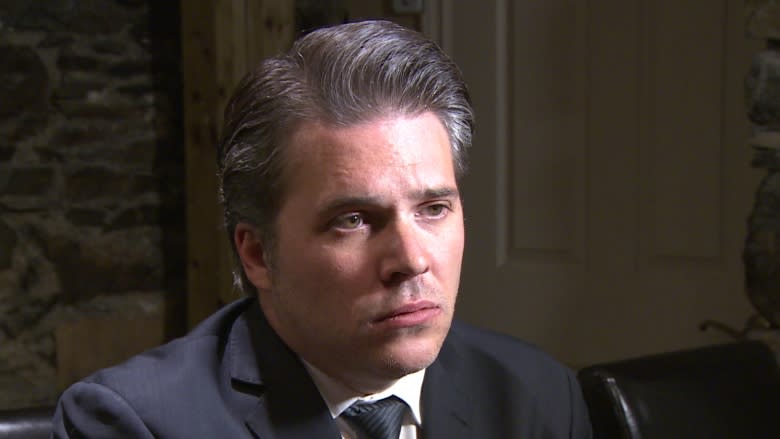Gambo mom not in the loop when mentally ill son needs care
A Gambo woman says she is worried that her 18 year-old mentally ill son is not getting the help he needs and, because of his age, says she's powerless when it comes to his medical care.
Sandra West told the Central Morning Show on Friday that it came to a breaking point Jan. 26 with a call from the James Paton Memorial Hospital.
"I received a call from the emergency room in Gander. It was about 11 o'clock at night, and they had called to inform me that my son was brought in," she said.
"He had overdosed on prescription medication, antidepressants, and my son asked them to call because he wanted to speak to me."
West said she panicked.
"I wanted to know what happened, if it was a possible suicide attempt. He was very agitated on the telephone. It was like he didn't know where he was."
West made the half-hour drive to the hospital, and said she was warned her son was confused.
She said he was screaming, looking for a cigarette and trying to rip out his intravenous tube.
"And they informed me they did have him certified under the Mental Health Act."
West said her son was diagnosed with attention deficit disorder and dyslexia while he was in school, and more recently with depression.
Not in the loop
"When he goes to the ER, this is his third attempt, well they basically save his life ... and they keep him certified which means he can't leave the hospital," she explained.
"They try to get his blood pressure back up because it's extremely low with all the medications he's after taking."
West worries what will happen if her son is released without her knowledge.
"I don't know if appointments are set up with a doctor. As far as I know he's given another prescription and told to go home."
Because her son is 18, West said she would not be informed about his hospital visit unless he asked someone to call her. Health care providers aren't able to provide her with any information.
"I do talk to my son, and all I get from him is, 'Nobody wants to help me. All they're doing is giving me pills, no one to talk to,'" she said.
West said she's tried to reach her son's doctors but they haven't returned her calls.
"It's very frustrating because I don't know what I can do for him, if I can't speak to his doctors on his behalf and let them know information that would be important for them to know because he's not telling them everything."
She said her son won't give consent to keep her in the loop.
"I guess he's afraid. A young teenage person is not going to admit everything to their doctor, because if they admit [that they're] suicidal [then] they're afraid of being locked up," she said.
Incentive to communicate
It's a classic struggle between the rights of the individual and the rights of a family, said former president of the Canadian Mental Health Association Mark Gruchy.
"When a person is 18, then he's not a child," he said.
Gruchy's advice — to keep the lines of communication open and to try to get signed consent as soon as possible after a patient turns 18.
"The person who's going through the experience needs to give the consent. If the relationship is a relatively positive one, I'm thinking it's normally going to happen," said Gruchy.
He said the subject often doesn't get raised or families run into a bureaucratic wall inside an overworked healthcare system.
"We're dealing with complex medical conditions to which there are no black and white answers."
"Everyone is stressed and overwhelmed ... there is little incentive to communicate because the conversations seem futile."
Gruchy said a person will be committed if they are a threat to their own safety, but said fear of "being locked up" should not get in the way of care.
"The real tragedy would be increasing the power to do that to people ... that has been the historical plague on the mental health system."
Sandra West said she has been struggling with the situation for two years.
"It's not only my son who is going through this," she said.
"If I can get people to stand behind me in this, there might be something we can do."





